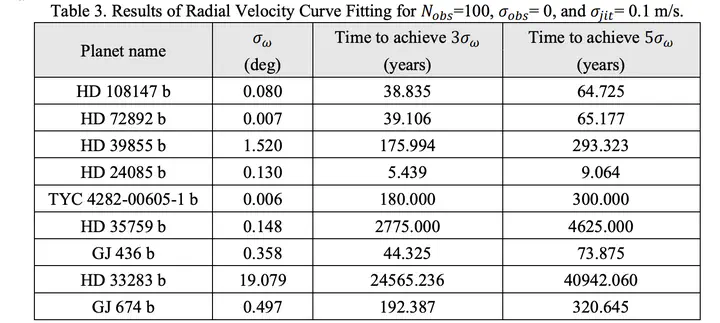
Abstract
In this work discuss the possibility of testing GR with a high degree of accuracy by observing the precession of perihelia in extrasolar planetary systems. Two approaches of measuring perihelion precession of exoplanets are considered- the radial velocity (RV) method and the transit method. In RV, the orbital parameters can be determined by fitting the observed RV curve, which is the reflex motion induced by the orbiting planet. In transit, the time separation of primary and secondary transits is observed to examine the precession. However, the secondary transits are generally week and difficult to be observed, with amplitudes usually less than 1ppm. Therefore, RV method is more feasible in this study. Focusing on the RV method, we creatively derive an analytic formula dAr = Ke sinf(ω) dω for evaluating the sensitivity of precession. To demonstrate the detectability, we simulate RV curves for the selected exoplanets and fit the synthetic data. We found that GR effect can be detected in ten years in some promising systems, with an assumption of the host stars being inactive (without any intrinsic noise) and the precision of RV instruments achieving 0.1m/s. Although successful testing of GR in exoplanetary systems depends on ideal situations as stated above, we will be able to verify the GR precession in near future, considering the rapidly increasing population of discovered exoplanets and the improvement in precision of detecting instruments.